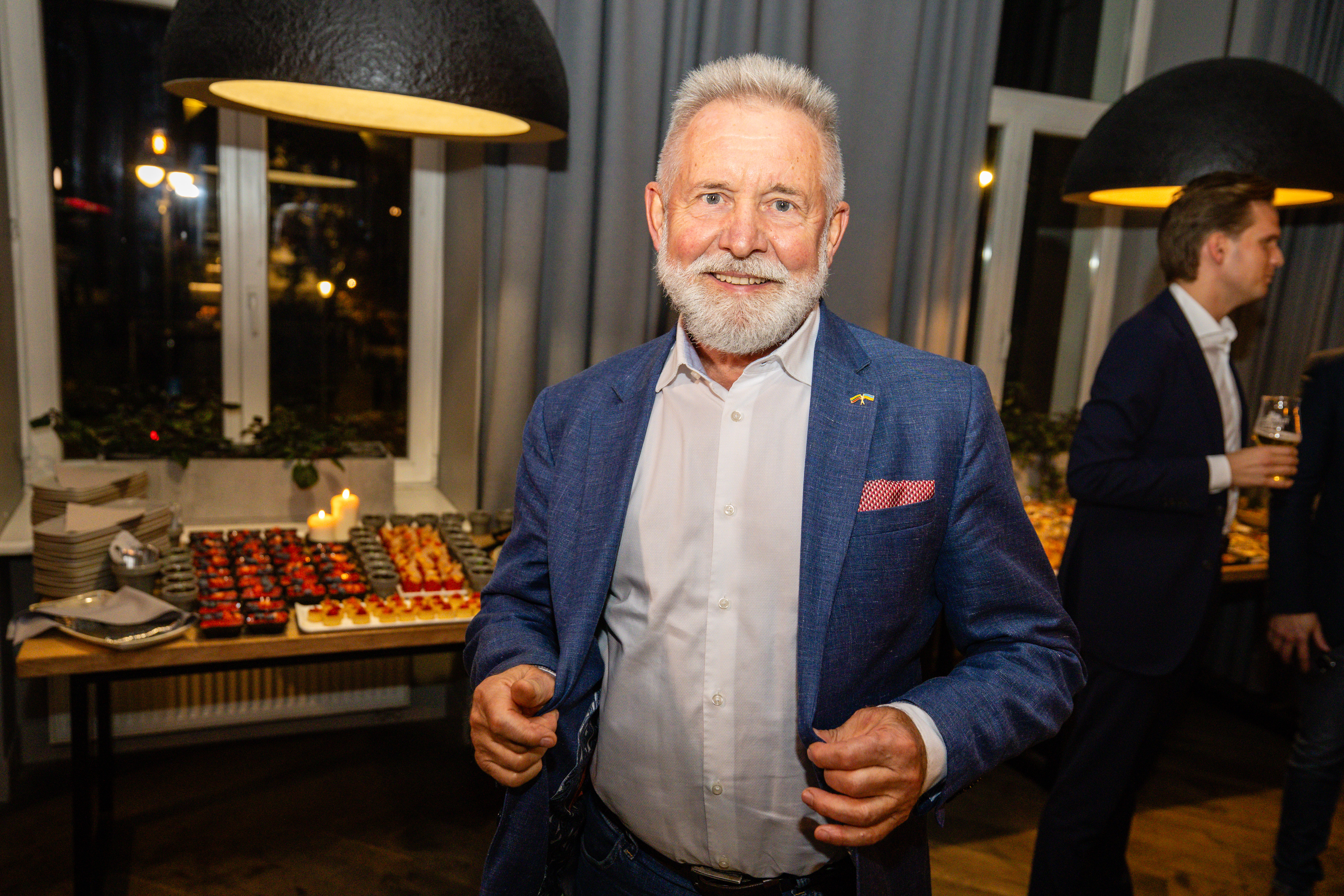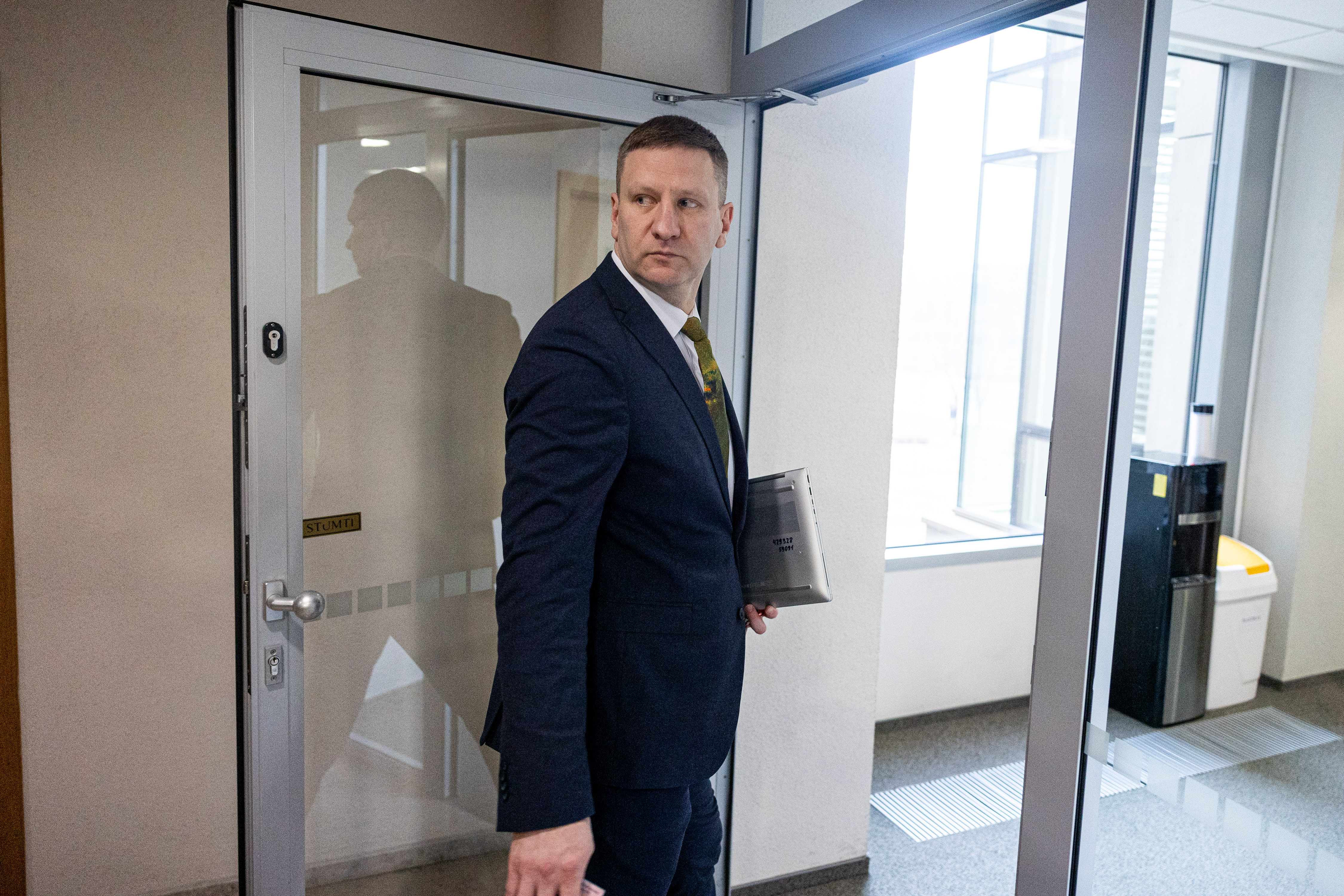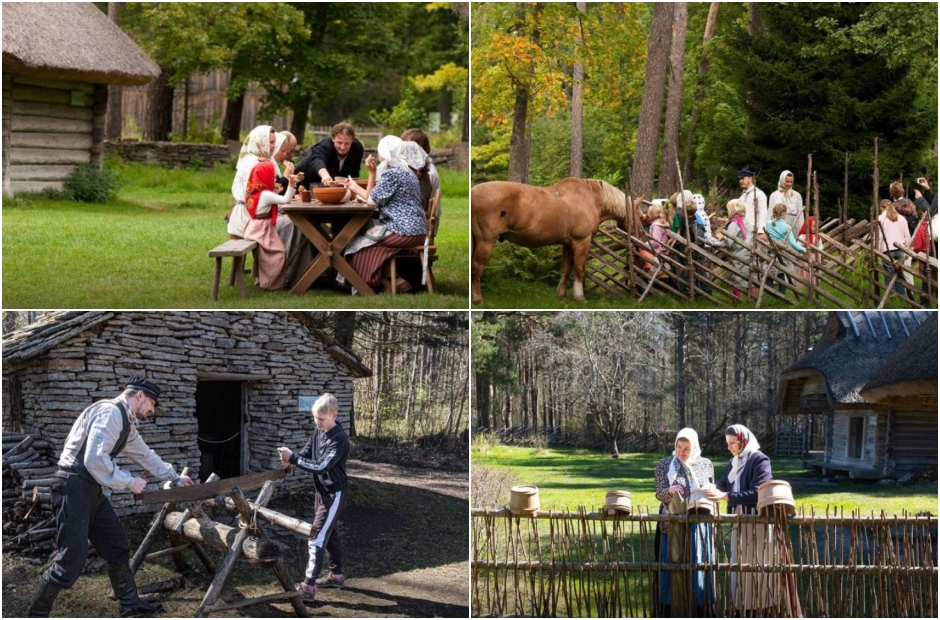What Europeans celebrate and what not

Fishing or rally
« Social Solidarity », « Higher Salaries », « There is no strike that will not go well, » said the participants of the march in Vilnius on May 1, International Labor Day. However, there were only over 100 of them. Trade unions for the first time on the May 1 march organized in Palanga. The Social Democrats also invited the people of Lithuania to celebrate this public holiday well.
The Minister of Social Security and Labor, Inga Ruginienė, who participated in the march in Vilnius, told reporters that May 1 was not so much a celebration as an opportunity to contribute to calling for solidarity, more rights and security for employees.
But on the eve of May 1, Liberal Eugenijus Gentvilas, a member of the Seimas, said: « I’ll go fishing, not to rall. » Most people in Lithuania do not rally and celebrate the international celebration on this day, discussing the solidarity and their rights of employees, but in their gardens or resting. The Soviet generation is associated with forced propaganda demonstrations, not the day when employees’ rights are emphasized.
However, it is no longer a proposal for the first time to abandon the International Work Day as a public holiday and transfer it from the Labor Code to the Law on Memorial Days last Tuesday in the Seimas and did not receive its approval again. 23 voted in favor of such a liberal project, 33 against, ten abstained.
Social Democrat Algirdas Sysas pointed out that the people of Lithuania are among the most employed in the EU, some other parliamentarians also disagreed with the arguments that in Lithuania too many holidays.
The Social Democrats reminded that May 1 in Lithuania has a long tradition. The first day was celebrated as early as 1892. In Vilnius, 1899. For the first time in Lithuania, a political demonstration took place in Lithuania.
By the way, during the interwar period, 1919-1929. The day was recognized as a celebration of solidarity of working people and nations, but after 1926. To celebrate it, it was restricted to the December coup. After the USSR occupation of Lithuania, since 1941 May 1 was the official public celebration, with the characteristic Soviet paradise in cities there were rallies and demonstrations. After the restoration of Lithuania’s independence, it was mentioned as the International Festival of Solidarity of the Working People, 1996-1997. And since 2001-a state holiday, an international working day. 1997-2001. She was on the list of days of memory.
Position: According to A. Sys, the people of Lithuania are among the most working in the EU, and in our country the holidays are not too much. Photo by T. Biliūnas / BNS
Which to give up
Simonas Kairys, one of the initiators of the project to lower the status of May 1 to the commemorative days, recalls that Lithuania is among those EU countries that have relatively many holidays, and the idea of one of them came to response to the Seimas Speaker Saulius Skvernelis to make the Freedom Defender Day on January 13. This has already been received by one of the favorable voting of parliamentarians, the draft is now being considered in the Seimas committees and is likely to be approved. So, if we establish another day of unemployment, one should abandon any existing.
Question – which? The Labor Code now includes sixteen holidays, but three of them (mothers, father and Easter first day) are always on Sundays, so thirteen fall out of the calendar. However, this is still quite a lot.
The Labor Code now includes sixteen holidays, but three of them (mothers, father and Easter first day) are always on Sundays, so thirteen fall out of the calendar.
We celebrate the three most important events of the history of our state: on February 16, the Restoration of the State of Lithuania, March 11-the Restoration of Lithuania’s Independence and July 6-the state (coronation of King Mindaugas) and « National Hymns ».
We do not work during a few religious holidays, which are certainly celebrated and not only the believers: Easter, Christmas Eve, the first and second Christmas days, November 1-All Saints and November 2-Day of the Dead’s Memorial (Halloween).
It would be strange to lose the first day of the New Year. The youngest celebration of the state is also celebrated-since 2004 it has been recognized on June 24-Dew and Midsummer.
August 15 is a much less mass celebration-Herbal (the Day of the Assumption of the Blessed Virgin Mary), and May 1-International Labor Day is even less. Thus, in the discussions that celebrate, the 1st of May, herbaceous, sometimes Midsummer, is mentioned.
« Yes, May 1 is an international celebration, it is a day off in many EU countries. However, in Lithuania it is not celebrated in Lithuania. Our proposal is better to leave those holidays that are more related to our country, our traditions, our culture, rather than having a free time, For one political force, the unions pay attention to really important things.
Opinion: « That day is needed for one political force, to pay attention to the trade unions. But it does not require a holiday, » says S. Kairys. Photo by P. Peleckis / BNS
It is true that in most EU countries, except Denmark and Ireland, this day is unemployment. In Estonia, it is a holiday day, but on another occasion is a spring day celebrated in the preparation of fairs with folk crafts and national music.
« In most EU countries, May 1 is a holiday day, but it is not an argument for us. It is an international day, but it does not have to be a holiday. We offer it to memorial days. Such examples we can mention one day or the other day, but not make it on a holiday.
The Government, in agreement with the initiative of the Speaker of the Seimas S. Skvernelis, to make a unemployment day on January 13, proposed to abandon the day of the next holiday-November 2, Halloween. This was approved by the Seimas Education and Science Committee.
According to data published by the Eurhes (European Employment Services), in addition to Lithuania, fifteen more EU countries have a decisive November 1. However, we are the only one from 27 EU countries to honor the dead for as long as two days.
In S. Kairis ‘opinion, however, we really celebrate All Saints’ Days, we travel to honor the dead, and to meet relatives. The sometimes less celebrated Herbal is also important because it reflects our Lithuanian traditions.
Trade union representatives are still holding positions in the Tripartite Council: after adding January 13 on the holiday list, no other celebration should be abandoned.
However, according to Kairis, it is also necessary to consider how much each unemployment day deprives the state. GDP, which is created a year, divides the number of working days, it turns out that we generate about 300 million litas in one working day. EUR economy. It is true that gas stations, shops, catering establishments, etc. are working, but still a very significant amount is lost. This is especially true now that additional defense funds are needed and the taxes are being considered to increase or introduce new ones to supplement the state budget.
What Europeans celebrate
According to the Eurhes (European Employment Services), EU countries have nine to fifteen holidays. All Europeans are starting the New Year, and the Romanians, the recorders of the holidays, immediately, at once, even two holidays. By the way, Latvians are not working on the last day of the year-December 31.
All EU countries celebrate Christmas, but unevenly long: just like us, even three days Bulgarians, Czechs, Cypriots, Danes, Estonians, Finns, Latvians, Romanians. Some countries have a so -called gift day after Christmas. The day of the unemployment and the second day of Easter are in all countries.
States have a national, independence, union, or otherwise named holidays related to its history. The more complex the history of the state, the more such, because, like the Baltic States, not only the anniversary of independence but also the restoration of independence must be mentioned.
Cyprus mentions 1821. Revolutions, Eoka – Honor of Cypriot Fighters and, like Greece, Ohio or « No » day, in 1940. The Greeks and Cypriots went to the streets to support the ultimatum of fascist Italy, which rejected fascist Italy.
In Malta A Sette Giugno’s National Festival, 1919 is remembered. Riotes arising from the cost of living in the crisis. Freedom Day marks the withdrawal of the British army and the withdrawal of the Royal Navy from Malta in 1979. anniversary. The Apostle St. Paul’s ship’s crash about our era for 60 years. Among other things, in the only Malta, the holidays and through Juoziniai.
Belgium has not only National Day, but also Flame and French community celebrations for the specifics of the country.
Many countries have holidays (most Catholic, some countries – orthodox) holidays. Like Lithuania, on August 15, The Austrian, Belgians, Croatians, Cypriots, French, Greeks, Italians, Luxembourg, Maltese, Poles, Portuguese, Romanians, Slovenians, Spanish celebrates the Virgin Mary. Twelve of the 27 EU countries have holidays in three kings, on Good Friday, as many as nineteen, Pentecost-ten, and sixth-nine.
Other: May 1 in Estonia is a holiday, but on another occasion is a spring day celebrated with folk music and customs. Photo by Visittallin.ee
There are festivals by regions: Scandinavians and the Baltic States celebrate in the middle of summer, Finns, Latvians – even two days.
The 11th of November in Belgium and France is the day of the ceasefire, as the ceasefire, or the end of World War I. Croatia has a day of anti -fascist resistance. Slovakia and France are not employed on May 8, celebrating Victory Day in World War II. Luxembourg celebrates European Day on the 9th of May.
In Poland, there is no work in honor of the Constitution of May 3, which is also very important for Lithuania. The Slovaks, the Spaniards also celebrate their Constitution Days.
Not only the Days of Saints become national holidays: the Czech Republic celebrates the 14th century. Theologian, church reorganization theorist, the day of the Czech national hero Jan Hus.
Not every country as Ireland boasts that its national holiday is St. Patrick’s day is celebrated elsewhere, including Lithuania. The Irish also have unique holidays: May, June, August and October are the so -called bank holidays, when not only banks, but also most companies and schools. From 2023 The Irish have another day of unemployment – the beginning of Sventoji Brigita celebrates the beginning of spring.
Romania and June 1-Children’s Day. The Slovenians do not work for cultural festivals and Bulgarians are not working on the occasion of Culture and Literacy Day. The Bulgarians also celebrate the day of the Holy George, or the military.
Most of the EU countries – after fifteen days of holidays, Bulgaria, Cyprus, Romania, Slovakia, the least – Estonia (10), Denmark and the Netherlands (9) have.
Most of the EU countries – after fifteen days of holidays, Bulgaria, Cyprus, Romania, Slovakia, and fourteen are Malta. Lithuania, along with Austria, the Czech Republic, France and Finland, has thirteen, one less Belgium, Greece, Italy, Croatia, Latvia, Portugal, Germany, eleven – Ireland, Poland, Luxembourg, Slovenia, Sweden and Hungary. The least holiday days of unemployment in Estonia (10), Denmark and the Netherlands (9 each).
The addition of another day of unemployment-January 13, Lithuania will run out to the most celebrating countries, or whether the existing holiday day will be abandoned, the Seimas will soon decide.
However, it is obvious that this will not be May 1. « It’s a shame we didn’t try to do it last term. But there was a status quo, and now we reacted because another holiday day was proposed. Once again, it is possible to give up on May 1, My liberal E. Gentvilas.
Holidays of holidays in the EU countries*
Bulgaria 15
Cyprus 15
Romania 15
Slovakia 15
Malta 14
Austria 13
Czech Republic 13
Lithuania 13
France 13
Finland 13
Belgium 12
Greece 12
Italy 12
Croatia 12
Latvia 12
Portugal 12
Germany 12
Ireland 11
Poland 11
Luxembourg 11
Slovenia 11
Sweden 11
Hungary 11
Estonia 10
Denmark 9
Spain 9
The Netherlands 9
*In addition to celebrated Sundays
Source: European Employment Services, Lithuanian Labor Code.










